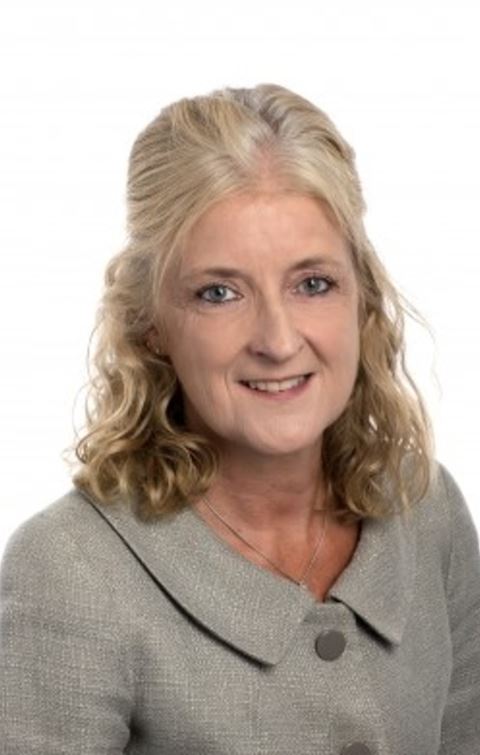 Dr Annette Doherty, President, Royal Society of Chemistry, United Kingdom
Dr Annette Doherty, President, Royal Society of Chemistry, United Kingdom
Annette has 35 years of international experience working within the pharmaceutical sector, including at Warner-Lambert, Pfizer and most recently GSK where she was Senior Vice President, Global Head of Product Development and Clinical Supply. She has been directly involved in the research, development and launch of over 30 new medicines in respiratory, infectious diseases, cancer and inflammatory conditions.
She is the recently appointed Chair of the Maidstone and Tunbridge Wells NHS Trust and is also a non-executive at the Cambridge University Hospitals NHS Foundation Trust. She holds various Trustee positions including at Addenbrookes Hospital Charitable Trust (ACT), St John Ambulance charity and Member at the Tonbridge Grammar School Academy. She is a Council Member at Innovate UK, part of UKRI.
She is currently Senior Advisor at Frazier Life Sciences, a team investing in and building companies developing and commercializing novel therapeutics.
She has a BSc in Chemistry (1982) and a PhD in Organic Synthesis (1985) from Imperial College London and has conducted postdoctoral research with a NATO fellowship at Ohio State University (1985-1987).
In 2009, Annette was awarded an OBE in recognition of her services to the pharmaceutical sector. She is an Honorary Fellow of the Royal Society of Chemistry and an Honorary Fellow of the British Pharmacological Society. She is the current President of the Royal Society of Chemistry - 2024 – 2026.
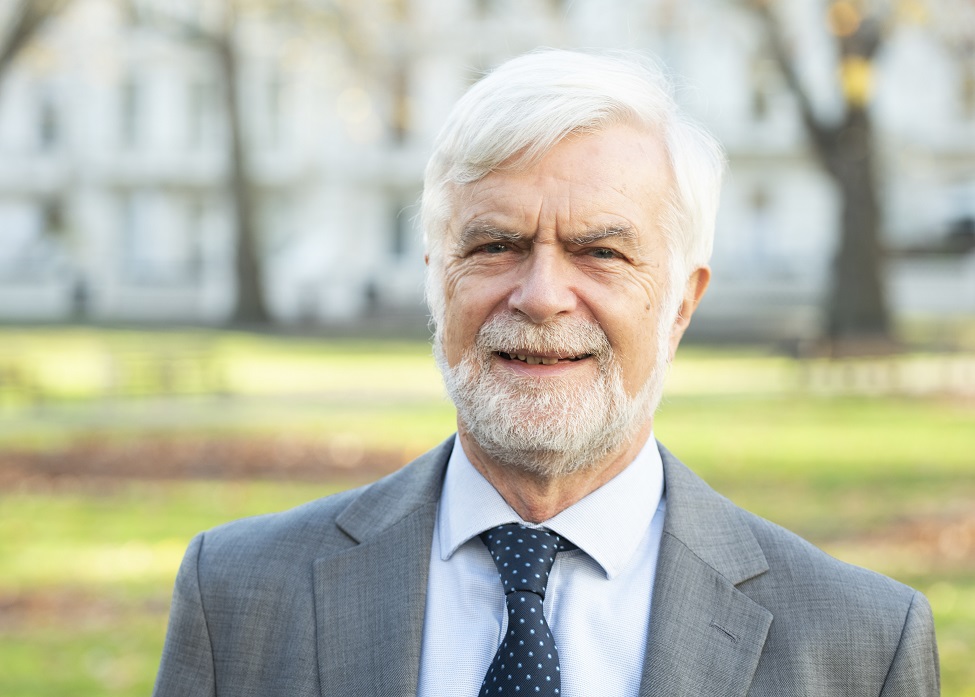 Professor Sir Jim Skea, IPCC, United Kingdom
Professor Sir Jim Skea, IPCC, United Kingdom
Professor Sir Jim Skea was elected IPCC Chair for the Seventh Assessment cycle in July 2023. He was Co-Chair of IPCC Working Group III for the 6th Assessment Cycle. From 2009 to 2023, Jim Skea was Professor of Sustainable Energy at Imperial College London. He has research interests in energy, climate change and technological innovation. He was Research Director of the UK Energy Research Centre 2004-12 and Director of the Policy Studies Institute 1998-2004. He was a member of the UK Committee on Climate Change from 2008 until 2018, and Chair of Scotland’s Just Transition Commission from 2018 to 2023.
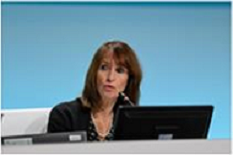 Dr Kay Williams, United Nations Environment Programme, Switzerland
Dr Kay Williams, United Nations Environment Programme, Switzerland
Kay currently works with the United Nations Environment Programme as Head of the Global Framework on Chemicals secretariat, based in Geneva Switzerland.
The majority of her career was spent at the UK Department of Food, Environment and Rural Affairs where she was latterly the Head of International Chemicals, Pesticides and Hazardous Wastes hub. Kay has been a lead negotiator for the Minamata Convention on Mercury, the Stockholm Convention on Persistent Organic Pollutants, Basel Convention on Hazardous Wastes in addition to the Strategic Approach to International Chemicals Management - SAICM often as Head of the UK delegation.
Externally, she chaired the Chemicals and Biotechnology Committee of the Environmental Health and Safety programme at the OECD; co-chaired the UNEP Special Programme Executive Board in addition to playing an active role in the UN Beyond 2020 intersessional process to develop the new Global Framework on Chemicals.
Kay has a PhD from Imperial College, London and began her career carrying out applied research at the Central Science Laboratory before moving to Government policy in 1999. She has held a wide variety of policy posts ranging from the Common Agricultural Policy through to sustainable procurement.
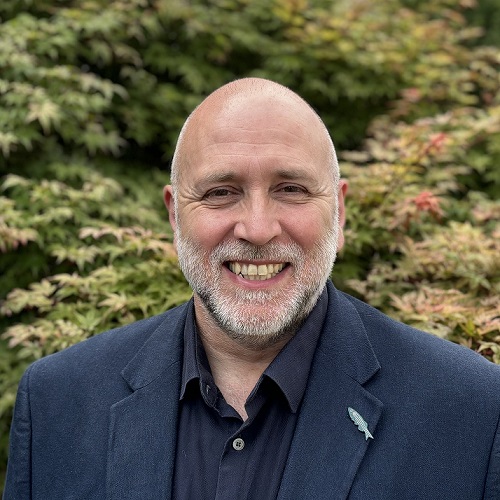 Dr Stewart Owen, AstraZeneca, United Kingdom
Dr Stewart Owen, AstraZeneca, United Kingdom
Stewart has specialised in understanding the effects of pharmaceuticals in the environment for more than 20 years. He leads PREMIER, an innovative health initiative consortium of 26 partner institutes and ~100 people addressing the environmental risks of medicines https://imi-premier.eu/ and collaborates extensively with academic and industry partners to develop the predictive tools that better identify and manage chemicals in the environment.
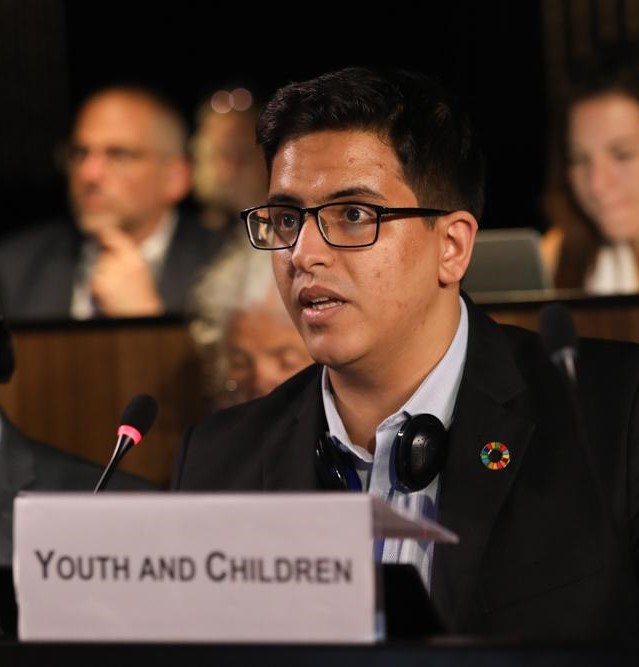 Aseel Abo-Taleb, Children and Youth Major Group to UNEP , Netherlands
Aseel Abo-Taleb, Children and Youth Major Group to UNEP , Netherlands
Aseel is a youth advocate for environmental sustainability and protection, holding a master's in Environment and Resource Management (Energy & Climate) from VU Amsterdam and a Bachelor's in Chemical Engineering from the University of Malaya. He is a research fellow at UNEP GEO-7 report. As a member of the Global Steering Committee of CYMG, he contributes to the coordination of youth engagement in thematic areas related to chemicals, waste, and pollution prevention in different UN processes including UNEA, OECPR, INC, OEWG SPP, International Zero Waste Day, and the GWMO report. Aseel advocates for intergenerational equity in environmental governance and meaningful youth participation in multilateral processes.
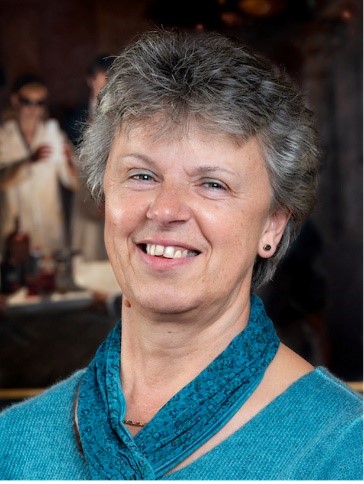 Professor Gill Reid, University of Southampton, United Kingdom
Professor Gill Reid, University of Southampton, United Kingdom
Gill is Professor of Inorganic Chemistry at the University of Southampton and was Head of Chemistry between 2016-2020, and served as President of the Royal Society of Chemistry from 2022-2024.
Her research focuses on coordination and organometallic chemistry, motivated by studies of new ligands to explore the influence of metal-ligand combinations on properties and reactivity, as well as application driven targets. These include developing reagents for use in CVD and electrodeposition of functional thin films and nanostructures. She also works on the development of metal-chelate scaffolds for binding the fluorine-18 radioisotope towards new positron emission tomography (PET) imaging agents.
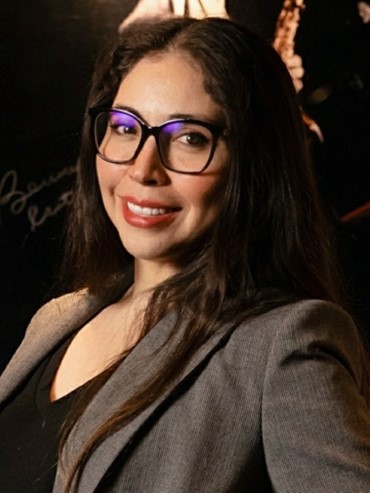 Dr.rer.nat. Yolanda López-Maldonado, Indigenous Science, Mexico
Dr.rer.nat. Yolanda López-Maldonado, Indigenous Science, Mexico
She is an Indigenous scientist whose work in nature conservation bridges natural, social and indigenous sciences. Her career is distinguished by a focus on integrating Indigenous knowledge and earth observations into contemporary science-policy-society fora. She has collaborated with UN organisations in multilateral settings and was recently appointed Lead Author of the Indigenous Knowledge and Local Knowledge for the Global Environment Outlook Report 7, United Nations Environmental Programme (UNEP). A Young scholar at the Beijer Institute of Ecological Economics, the Royal Swedish Academy of Sciences and Junior Fellow the International Institute for Applied Systems Analysis, she holds a PhD from Ludwig-Maximilians-Universität München (Germany).
 Professor Matthew Davidson, Bath Institute of Sustainability and Climate Change, United Kingdom
Professor Matthew Davidson, Bath Institute of Sustainability and Climate Change, United Kingdom
Matthew Davidson is Professor of Sustainable Chemical Technologies at the University of Bath and Director of an EPSRC Centre for Doctoral Training in this area. He is also Director of its Institute of Sustainability and Climate Change at Bath and Executive Director of the Innovation Centre for Applied Sustainable Technologies (iCAST).
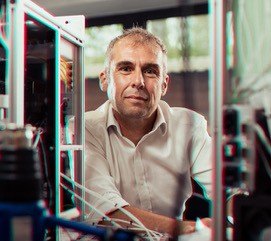 Alastair Lewis, University of York, United Kingdom
Alastair Lewis, University of York, United Kingdom
Alastair Lewis is professor of atmospheric chemistry at the University of York. He is an experimental scientist who has studied the composition of the atmosphere from polar regions to megacities, open oceans to tropical forests. He received the 2012 John Jeyes Prize for Environment, Energy and Sustainability and the 2022 Royal Society of Chemistry award for contributions to science policy. He is currently Chair of the Defra Air Quality Expert Group, Department for Transport Science Advisory Council and a member of the Environmental Sustainability Panel of the Civil Aviation Authority. He has been a contributor to >300 scientific papers, chapters and reports on topics including pollution, environmental impacts, measurement technology and health effects.
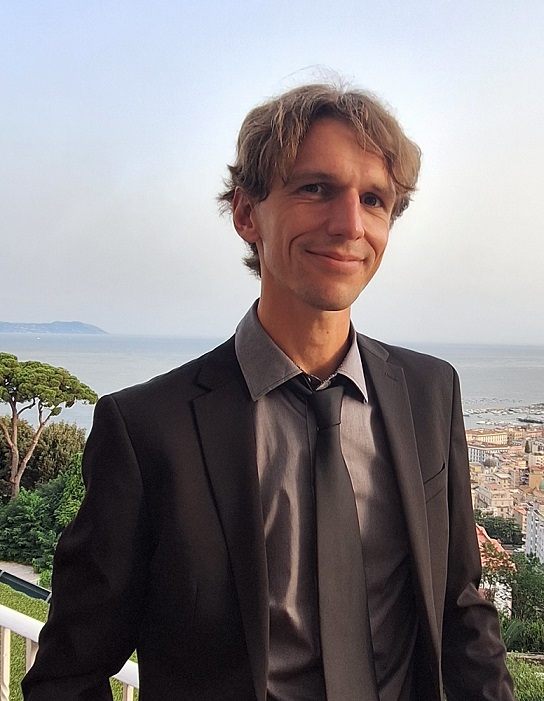 Dr Christian Zerfaß, Friedrich Schiller University Jena, Germany
Dr Christian Zerfaß, Friedrich Schiller University Jena, Germany
I am researcher in a groundwater study at the University of Jena (Germany), applying untargeted liquid chromatography coupled to mass spectrometry (LC-MS) to derive patterns in the long-term dynamics of dissolved organic matter (DOM) components. Before, I carried out research at the University of Warwick (UK) and at Mainz University (Germany) in synthetic biology and protein biochemistry.
I am proud RSC member since 2013, have previously served in the Birmingham / West Midlands local section, as volunteer and committee member in the chemists’ community fund (CCF), and am currently part of the water science forum (WSF) interest group committee.
 Paul Whaley, Lancaster University, United Kingdom
Paul Whaley, Lancaster University, United Kingdom
Paul Whaley was the first specialist editor of systematic reviews in toxicology and environmental health research. Since 2016 he has handled over 500 submissions and contributed to over 40 publications relating to best practices in the conduct, reporting, evaluation, and publishing of systematic reviews. He has worked with many leading users of systematic review methods in chemical assessment, including the US Environmental Protection Agency, US National Toxicology Program, the World Health Organization, and the European Food Safety Authority.
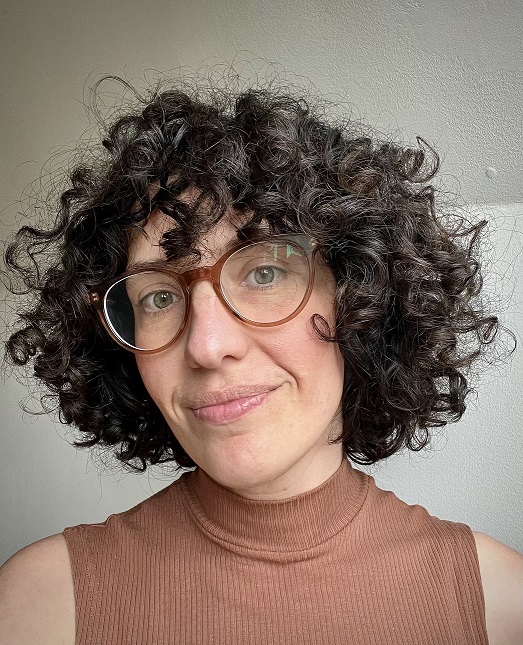 Dr Angeliki Balayannis, Wageningen University & Research, Netherlands
Dr Angeliki Balayannis, Wageningen University & Research, Netherlands
Dr Balayannis is a transdisciplinary social scientist specialising in the problems of pollution and waste, with a focus on planetary health. Her work interrogates and intervenes in how pollution and waste are understood, managed, and governed in everyday practice. She is an Associate Professor in the Knowledge Technology and Innovation Group, at Wageningen University & Research in the Netherlands, and is about to commence a new 5-year collaborative project funded by the Dutch Research Council on PFAS and the problems these chemicals pose in institutional and daily practices.
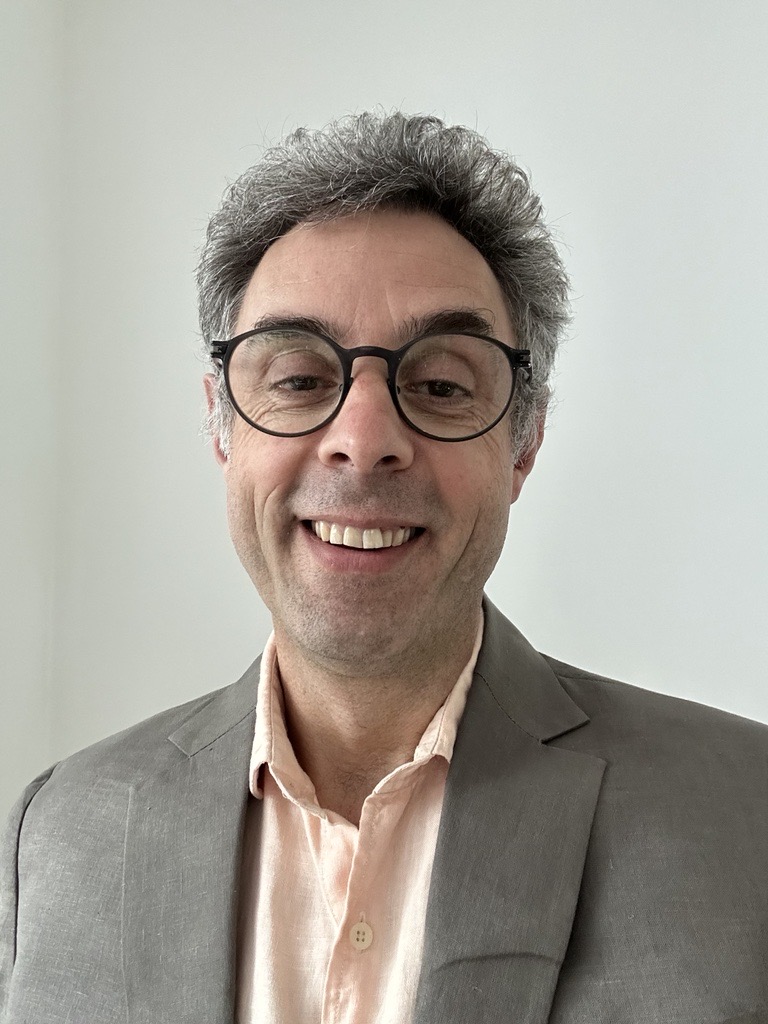 Chris Barber, Lhasa Limited, United Kingdom
Chris Barber, Lhasa Limited, United Kingdom
is the CEO of Lhasa Limited, an educational not-for-profit charity that focusses on developing computer applications that support decision making in chemical safety. Chris uses his experience as a pharmaceutical medicinal chemist to lead Lhasa as it develops innovative predictive computational models, databases and decision-support systems that are widely used by industry and regulators by over 600 organisations across the world.
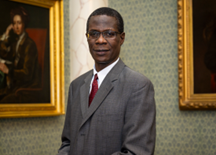 Professor Robert Mokaya, University of Sheffield, United Kingdom
Professor Robert Mokaya, University of Sheffield, United Kingdom
Robert Mokaya received his B.Sc. in Chemistry from the University of Nairobi in 1988 and was awarded his PhD from the University of Cambridge in 1992. Following a Research Fellowship at Trinity College, Cambridge, he was awarded an EPSRC Advanced Fellowship in 1996. Mokaya joined the School of Chemistry at the University of Nottingham as a lecturer in Materials Chemistry in 2000 and progressed to Professor of Materials Chemistry (2008) and Pro-Vice-Chancellor Global Engagement (2019 - 2024). He recently started the role of Provost and Deputy Vice-Chancellor at the University of Sheffield.
Robert is President-Elect of the Royal Society of Chemistry for the period 2024 – 2026 and will be President in 2026 to 2028. He is a Royal Society Wolfson Research Merit Award holder (2017- 2022), was appointed OBE in 2022 for services to the Chemical Sciences and was elected Fellow of the Royal Society (FRS) in 2023.
His research interests are on the design, synthesis and characterisation of new forms of sustainable porous materials and the study of their structure-property relations. The research involves exploring fundamentally new synthesis methods that are simpler, cheaper, and more efficient and offer valorisation routes to materials with optimised properties for targeted sustainable energy applications.
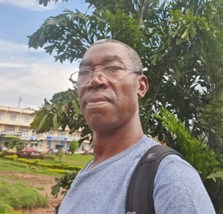 Professor Anthony Gachanja, Jomo Kenya University of Agriculture and Technology, Kenya
Professor Anthony Gachanja, Jomo Kenya University of Agriculture and Technology, Kenya
Professor Anthony Gachanja is an Analytical Scientist with nearly three decades of experience. He is a dedicated lecturer, researcher, and consultant who works closely with government bodies, particularly in environmental law and policy formulation.
Professor Gachanja earned his Bachelor of Science in Chemistry from the University of Nairobi in 1982, followed by a Master’s in Analytical Science and a PhD in Chemistry from the University of Hull in 1983 and 1991, respectively. He then completed a three-year postdoctoral research fellowship at the University of Plymouth. Currently, he serves as a Professor of Analytical and Environmental Chemistry at Jomo Kenyatta University of Agriculture and Technology (JKUAT), Kenya.
Upon returning to Africa, Professor Gachanja focused on enhancing analytical chemistry skills across the continent. He developed the Analytical Chemistry curriculum at JKUAT, a model now adopted by other universities in the region. He actively collaborates with both government agencies and private industry, offering expertise in analytical and instrumental techniques.
His research interests lie in environmental analysis, particularly the use of separation techniques and mass spectrometry to study environmental samples. For over a decade, he has been a key figure in training scientists across Africa in instrumental techniques such as GC-MS and LC-MS/MS, under the sponsorship of the Royal Society of Chemistry (RSC) and the Pan Africa Chemistry Network (PACN). To date, he has trained over 700 scientists. He also co-authored the RSC-published book *GC-MS: How Do I Get the Best Results?*
Recognized as one of the RSC’s 175 Faces of Chemistry, Professor Gachanja was featured on the 2020 Power List as one of the Top 100 most influential people in analytical science over the past decade. He has also received an honorary Doctor of Science degree from the University of Plymouth.
Professor Gachanja is passionate about developing analytical skills in Africa and strongly believes that chemical analysis is vital for the progress of both developed and developing economies.
 Lucia Santirso, Bridges Outcomes Partnerships, United Kingdom
Lucia Santirso, Bridges Outcomes Partnerships, United Kingdom
Lucia Santirso has been working with Bridges for the last 6 years in the Social Outcomes team. During this time, Lucia has designed and implemented more than 10 Outcomes Partnerships related to the areas of health, education and the environment. Lucia was part of the GSG Policy working group and is a co-author of the report they produced: “Catalysing an Impact Investment Ecosystem: A Policymaker’s Toolkit”. Prior to joining Bridges, Lucia worked in Equity Research at J.P. Morgan. Lucia holds a MSc in International Finance from HEC Paris and a BSc in International Business Administration from Rotterdam School of Management.
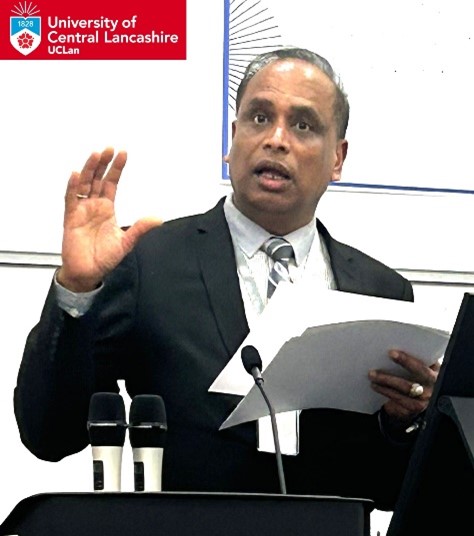 Tapas Sen, University of Central Lancashire, United Kingdom
Tapas Sen, University of Central Lancashire, United Kingdom
Dr Sen is an internationally renowned academic with more than 30 years research experience from laboratory scale development to a commercial product involving nanotechnology. His research focuses on public health issues: (i) Chemical pollution in water and mitigation; (ii) patience with severe bloodstream infection and liver cancer. He run several projects with India and China since 2010 including 3 ongoing projects, funded by British Council under “Going Global” on chemical pollution in water. He is a Fellow of Royal Society of Chemistry, a Fellow of Royal Society of Medicine, and a Fellow of Higher Education Academy, UK.
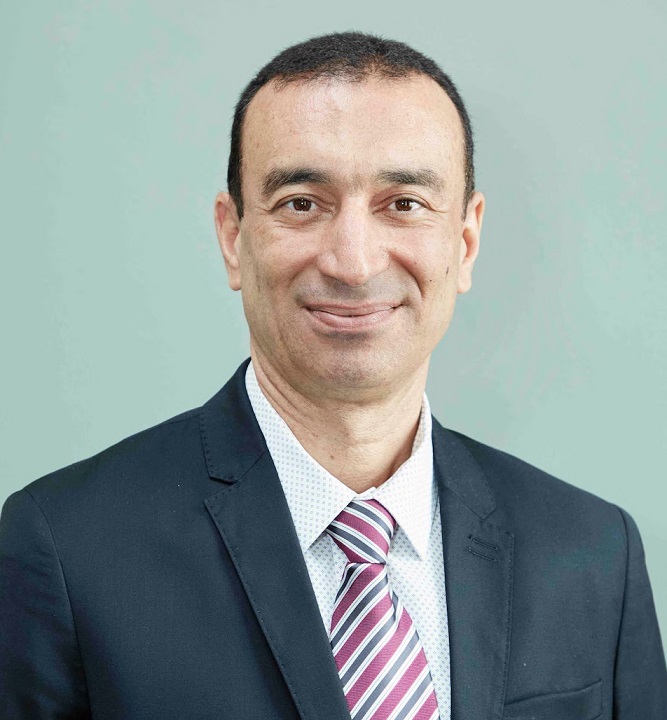 Dr Mohamed Abdelraouf Abdelhamid, Gulf Research Center, Saudi Arabia
Dr Mohamed Abdelraouf Abdelhamid, Gulf Research Center, Saudi Arabia
Dr. Mohammed Abdelraouf is the Environmental Security and Sustainability Research Program Director at the Gulf Research Center out of Riyadh, `Geneva and Cambrdige (2005 to date). He holds a Ph D in environmental Economics from Ain Shams University, Cairo, Egypt and done advanced training program in Environmental Economics and Accounting at university of Augsburg, Germany. He is also non-resident Environmental researcher with many other think tanks/institutes in MENA/Europe.
Currently, Dr. Raouf is Co-chair of the Major Groups Facilitating Committee at UNEP and a member of Interdisciplinary Stakeholders Advisory board of GEO 7 report of UNEP. He was part of T20 team of Saudi Arabia working group on Climate change. He worked in many projects related to climate change such as “Climate Change and Peace building in MENA region”, Berghof Foundation, Germany in 2021. He authored five books and published various policy papers on different environmental issues in MENA Region such as “GCC-EU Climate Change Partnership” published by Bussola Institute in Brussels, Belgium, November 2019.
Dr. Raouf organises, participates and presents at various UN Meetings such as “UNEAs of UNEP”, “OWEG for the SPP on Chemicals, waste and pollution” and COP27 and COP28 of UNFCC.
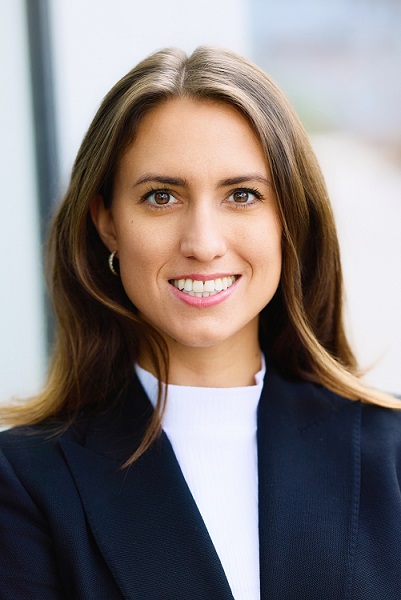 Anna Becker, ISC3, Germany
Anna Becker, ISC3, Germany
Anna Isabel Becker worked for several years in public affairs, strategic communication, and government relations on German national and European level. She studied European Studies and Political Sciences in several countries. Ms. Becker is the policy director at the International Sustainable Chemistry Collaborative Centre (ISC3) and contributes to the mission promoting Sustainable Chemistry worldwide.
-
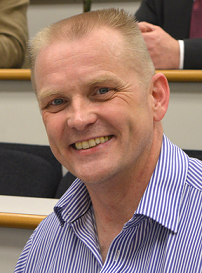
Professor Tom Welton
Imperial College London, United Kingdom
-
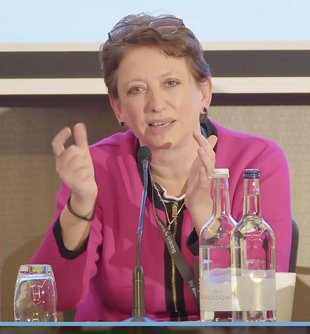
Dr Camilla Alexander-White
Royal Society of Chemistry , United Kingdom






























